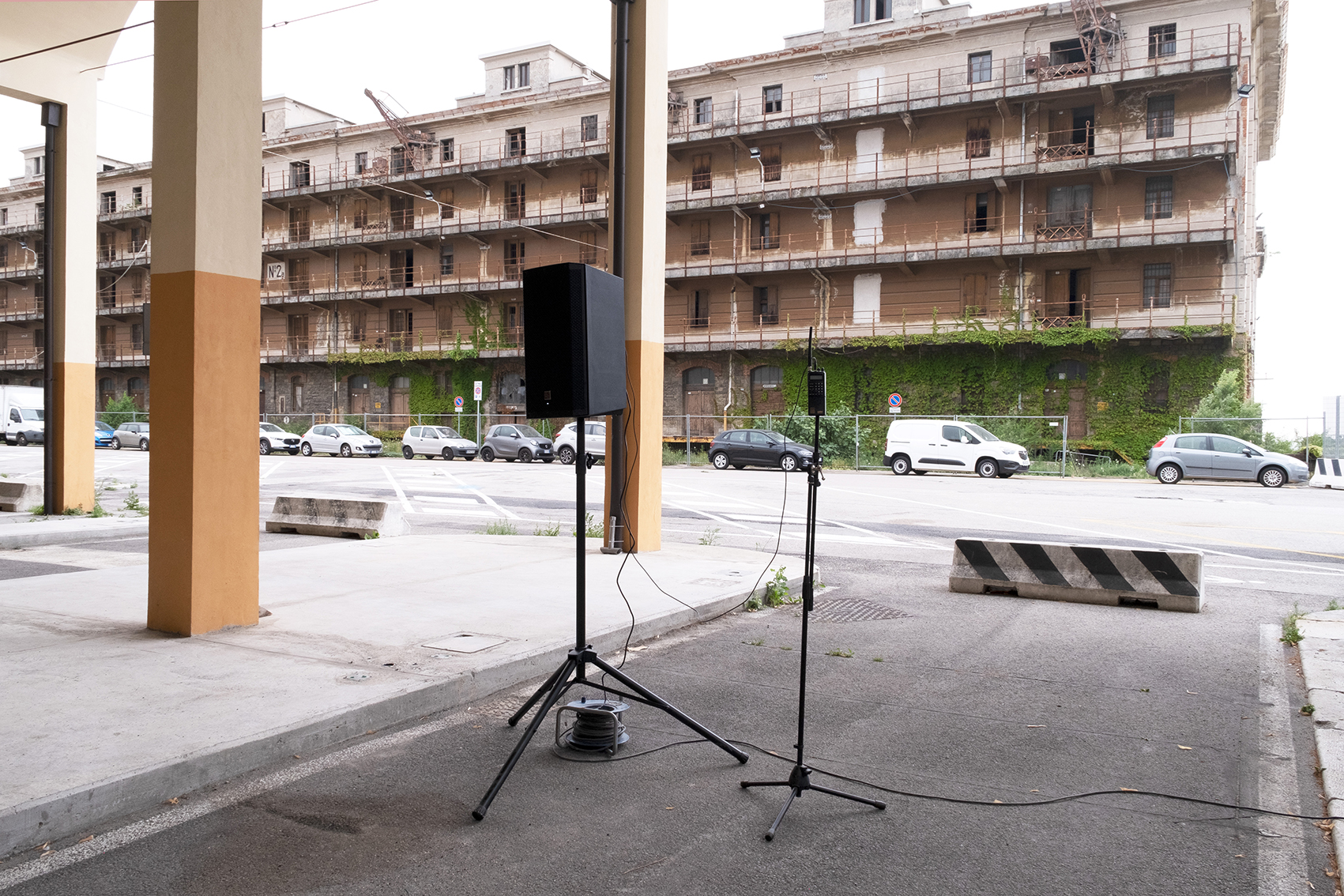La lingua me defendi
2024Varco Momumentale VII, Porto Vecchio, Trieste, Italy
4 channel sound installation at the old port of Trieste, (18min)
The exhibition was the outcome of a residency with POP Adriatico, Trieste
Supported by Gangart and Comune di Trieste, Creative Living Lab - Edizione 5, and promoted by Direzione Generale Creatività Contemporanea
 La lingua me defendi was the outcome of my research during a residency in Trieste, Italy, with POP Adriatico. The four-channel sound installation focused on women’s work at the port, in the present day and the past. The work was installed in Varco Monumentale VII, a part of the original port, in an area surrounded by disused warehouse buildings.
La lingua me defendi was the outcome of my research during a residency in Trieste, Italy, with POP Adriatico. The four-channel sound installation focused on women’s work at the port, in the present day and the past. The work was installed in Varco Monumentale VII, a part of the original port, in an area surrounded by disused warehouse buildings. The installation was a sonic collage which gathered musical recordings of the sesolòte women from the past with contemporary women’s song, live maritime radio reports and more, to form a constellation of sound-based research in a part of the port near where the sesolòte once worked. The work overlapped multiple voices: through sound, the women of the past and present crossed and communicated. These sounds were dispersed from the port — just as goods are dispersed to sea.
In the late 19th and early 20th centuries, the port of Trieste relied upon the sesolòte women: hard-working, underpaid women who spent long arduous days sorting and packaging shipped commodities — from coffee to cotton, flour to tobacco. The sesolòte were strong, independent women central to the functioning of the port, yet their contribution went barely acknowledged. La lingua me defendi were among the lyrics (in local dialect) that these courageous women sang together, while busy working, roughly translating as ‘my tongue/my words/my language defend me’. Their indispensable labour was considered secondary to the mens’, despite crucially enabling the flow of commodities in and out of the port and stabilising the economic fortunes of the Austro-Hungarian empire.
The four channel sound installation featured the following components:
A VHF radio scanner live auto-scanning for communications at Porto di Trieste
Two songs of the sesolòte: Coraggio Tabacchino and Son Baba son de Rena sung by Adriana Giacchetti and Chiara Minca
A selection of songs by the sesolòte on the LP Vose de Trieste Austriaca, canzoni popular triestina incise Ali inizi del secolo, pressed in 1970, but likely recorded at the turn of the 20th century.
VHF radio recordings of automated female voices recorded at the Porto Vecchio during my time on the residency

Photo: POP Adriatico

 .
. 

